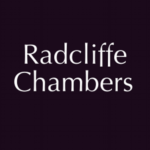Continue reading "Proprietary estoppel: A principled approach to the facts"
Proprietary estoppel: A principled approach to the facts


Continue reading "Proprietary estoppel: A principled approach to the facts"
The claimants occupied land at Falmouth in Cornwall (the property) initially pursuant to a written agreement for the grant of a 15-year lease from 1 January 1993 at a rent of £400 per annum. The agreement was never signed by the defendant’s parents, who were then the freehold owners, with the result that it did not qualify as a valid agreement for the grant of a tenancy of 15 years, due to failure to comply with the requirements of s2 of the Law of Property (Miscellaneous Provisions) Act 1989. After the expiry of the 15-year period, the claimants continued to pay, and the defendant to ac...
This claim concerned a property. The freehold had belonged legally and beneficially to J who had run a business of a pub and restaurant from the property in partnership with her husband B. J died in 1997. On her death the property passed by her will to her executors and trustees, essentially for the benefit of B for his life and, subject to B’s interest, for J’s three children in equal shares (the will trust).
The claimants were the current trustees of the will trust and hence the legal owners of the freehold of the property. The first defendant was J’s son (one of the beneficiari...
This was the hearing of an application for strike out of a Part 20 claim or alternatively summary judgment in favour of the defendants where the underlying proceedings related to two separate trusts: a settlement of land and other assets created on 18 February 1967 by Charles (the settlement) and a will dated 15 March 1998 of Charles’s son, John, who died on 20 December 2004 (the will fund).
The claimant in the underlying proceedings had sought declaratory relief regarding the construction of a March 2007 deed, alternatively rectification of it, whereby the trustees of the will fu...

Continue reading "Proprietary Estoppel: Words and deeds"
In 2002, the appellant and the respondent set up home together in a house in Droitwich. They remained unmarried. The property was purchased in the appellant’s sole name with his money alone, and he took on sole responsibility for the mortgage. On the breakdown of their relationship, the respondent claimed that the appellant held the property was held by him on constructive trust for both parties in equal shares. That claim failed before His Honour Judge Pearce-Higgins QC, but her alternative proprietary estoppel claim succeeded. The respondent was awarded £28,500 in satisfaction of the e...
John Vincent Sheffield (JVS) and his wife Ann Sheffield bought 1,000 acres of land in Hampshire in 1968 as tenants in common, with JVS owning 25% and Ann 75% (the 1968 settlement). The land included two farms, numerous residential properties and some shooting rights over adjoining land. Ann died in 1969 and left JVS a life interest in her estate and thereafter to their son Julian. In 1971 JVS married France (who predeceased him) and he lived on the estate until his death in May 2008.
In May 1976 JVS agreed a farming partnership of the farming land on the estate. JVS was entitled ...